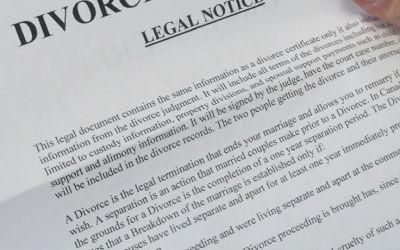
How to File For Divorce in Dubai for Indians: A 2025 Guide
Table of Contents ▼
Divorce can be a challenging and emotional process, especially when navigating foreign laws in a city like Dubai.
For Indian nationals seeking divorce in Dubai, knowing the legal requirements is key.
This article covers the steps, prerequisites, and considerations for divorce in Dubai for Indians.
Filing for Divorce in Dubai for Indian Nationals: The First Step
For Indian nationals seeking divorce in Dubai, the procedure starts by filing an application with the Family Guidance Section at Dubai Courts. Muslim expatriates divorce under Sharia Law, but non-Muslims may apply their personal laws under Federal Law No. 28 of 2005, which allows non-citizens to opt for their home country’s legal system.
This step is required for both Muslim and non-Muslim expatriates, including Indian nationals, as it aims to facilitate reconciliation before the divorce case proceeds further.

Required Documents
For divorce in Dubai for Indians, you must submit your marriage certificate, translated into Arabic if required, along with passport and visa copies of both spouses. If children are involved, their passports and visa documents are necessary. These documents enable the Family Guidance Section to assign a conciliator and start the mediation process.
Mediation and Conciliation Process
During divorce in Dubai for Indian nationals, mediation is required by law. The conciliator acts as a neutral mediator to help resolve disputes, including custody and financial arrangements. Legal representation is not allowed during this stage. If the couple cannot agree, a referral letter enables the divorce case to proceed in court.
Court Proceedings for Divorce
Should mediation fail, the divorce case proceeds to the court phase. Both parties have the opportunity to present evidence and argue their cases. The court will determine child custody, financial settlements, and division of assets.

Evidence Presentation: Both spouses must submit relevant evidence, such as financial documentation and witness statements.
Legal Representation: Unlike mediation, parties may have legal representation during court hearings. Hiring an experienced UAE family law lawyer is recommended for contested cases.
After reviewing evidence and hearing arguments, the court issues its final decision on the divorce.
Choosing Between UAE Law or Indian Law for Divorce in Dubai for Indian Nationals
Indian nationals in Dubai can decide whether to proceed with divorce under UAE law or Indian law, depending on their preferences and agreement.
Divorce Under UAE Law
If both spouses agree, the Dubai courts can handle the divorce fully under UAE law. This is the most commonly used method by expatriates, including Indian nationals seeking divorce in Dubai for Indians.

Divorce Under Indian Law
If Indian law is preferred, couples may file for divorce at the Indian consulate. Consulting a lawyer who understands both Indian and UAE legal systems is advisable to ensure smooth proceedings.
Financial Matters and Alimony
Financial support and division of assets play a major role in divorce in Dubai for Indian nationals. The court can order monthly alimony payments to the financially dependent spouse. The sum depends on how long the marriage lasted, financial contributions, and the couple’s living standards during the marriage.
Property and assets are divided equitably by the court to benefit both parties.
Child Custody
Child custody is a key issue in divorce in Dubai for Indian nationals. Typically, the mother is granted custody of younger children, while the father receives visitation rights. Custody decisions are based on the child’s best interests, including emotional wellbeing, education, and parent-child relationships.
Finalizing the Divorce
The court finalizes the divorce after ruling on custody, alimony, and asset division. Both spouses receive a divorce certificate, which serves as proof of their changed marital status in Dubai’s official records.
Important Considerations for Divorce in Dubai for Indian Nationals
Indian nationals applying for divorce in Dubai need to have all essential documents translated into Arabic for the UAE courts. A skilled divorce lawyer familiar with UAE laws is necessary, especially if the case involves disputes over custody, finances, or property.
Mediation is compulsory before the court stage. The court gives preference to the child’s welfare, often granting custody to the mother and ordering financial support. Knowing how to enforce rulings internationally is important when assets are abroad.
Conclusion
Although divorce in Dubai for Indian nationals may feel complicated, the process becomes manageable with expert legal guidance.
Easy Wedding will help you understand your options under both UAE and Indian law for a fair and smooth divorce. Our team is dedicated to assisting you throughout the divorce journey and also offers help with court marriages for Indians in Dubai.


